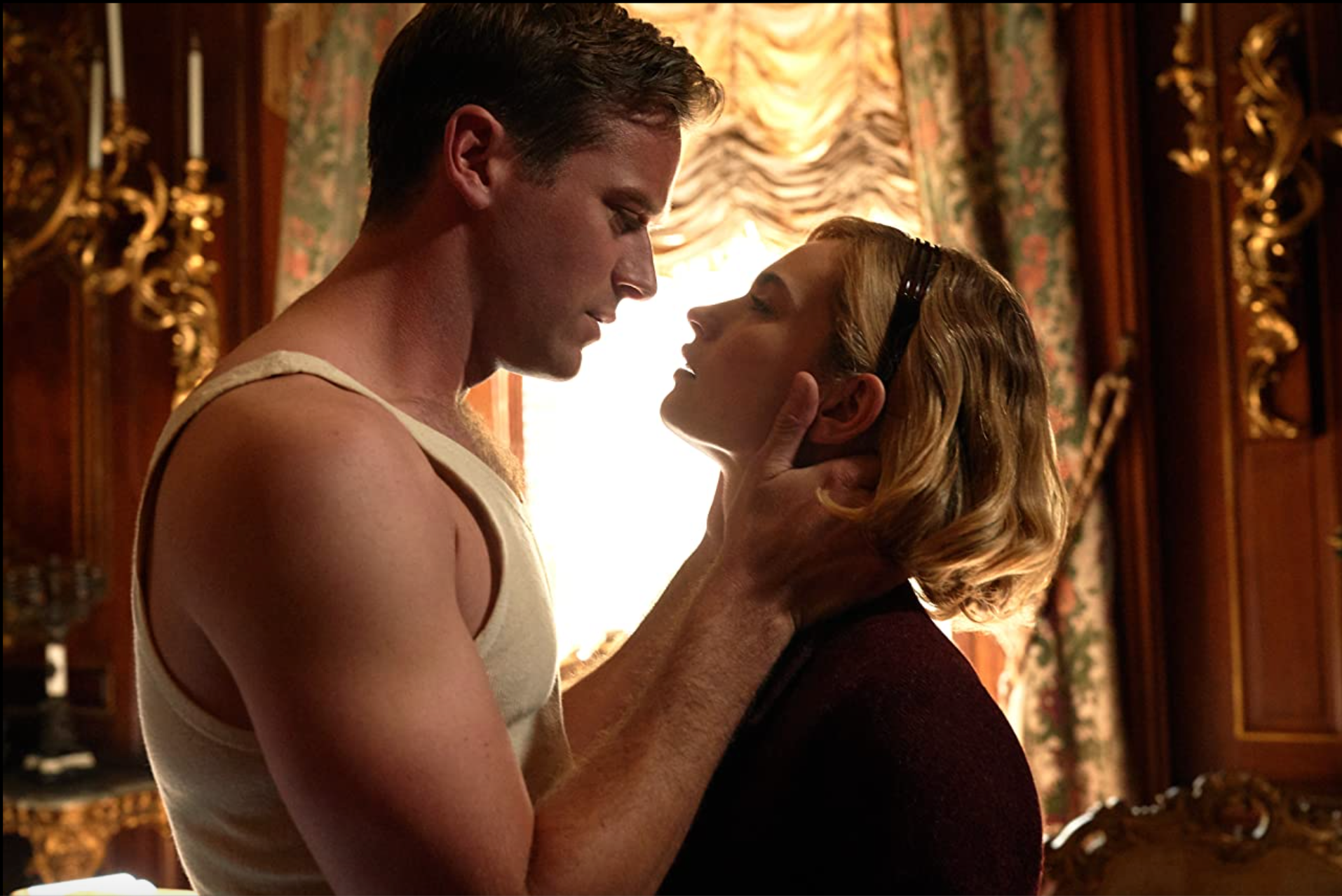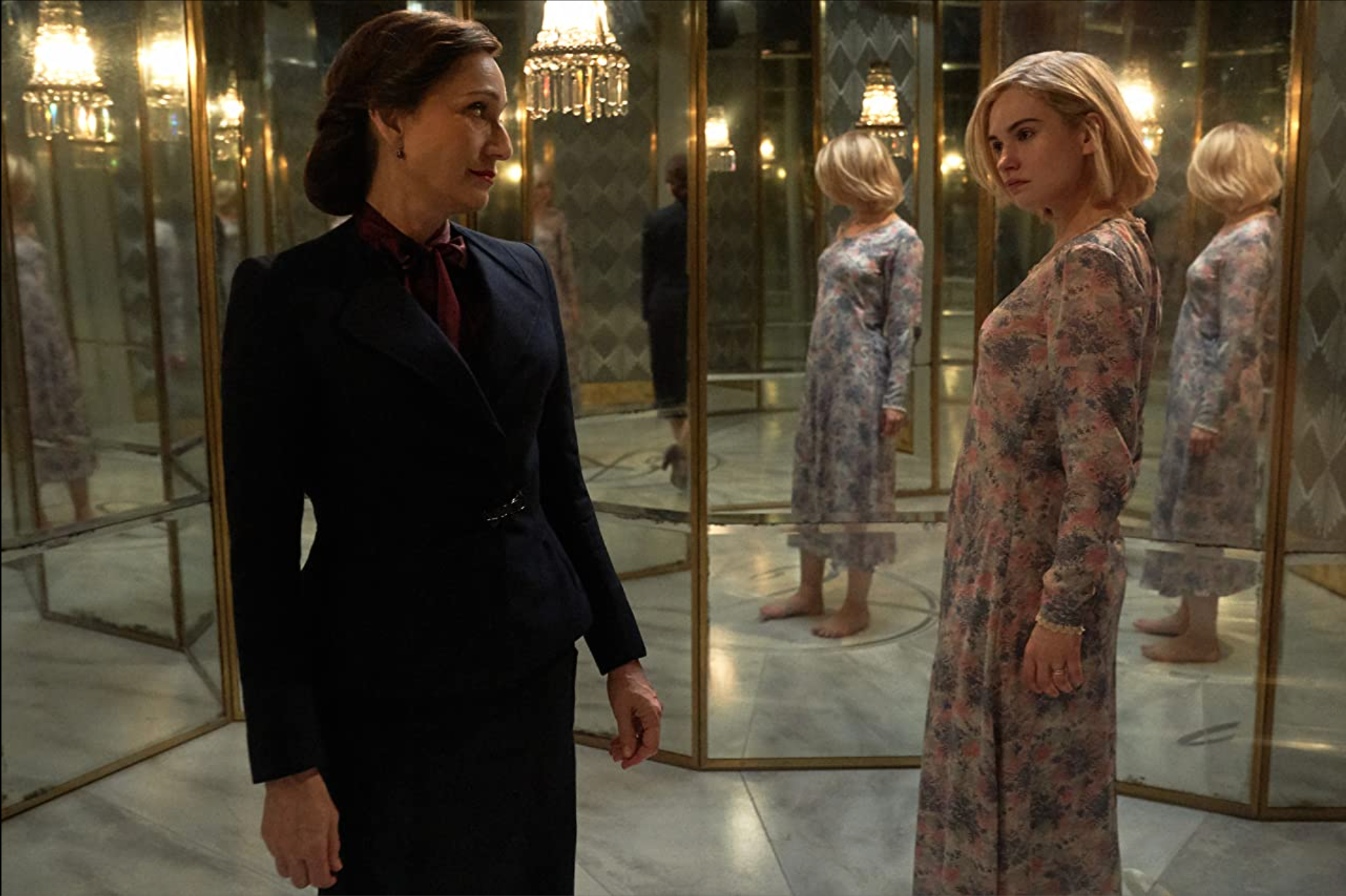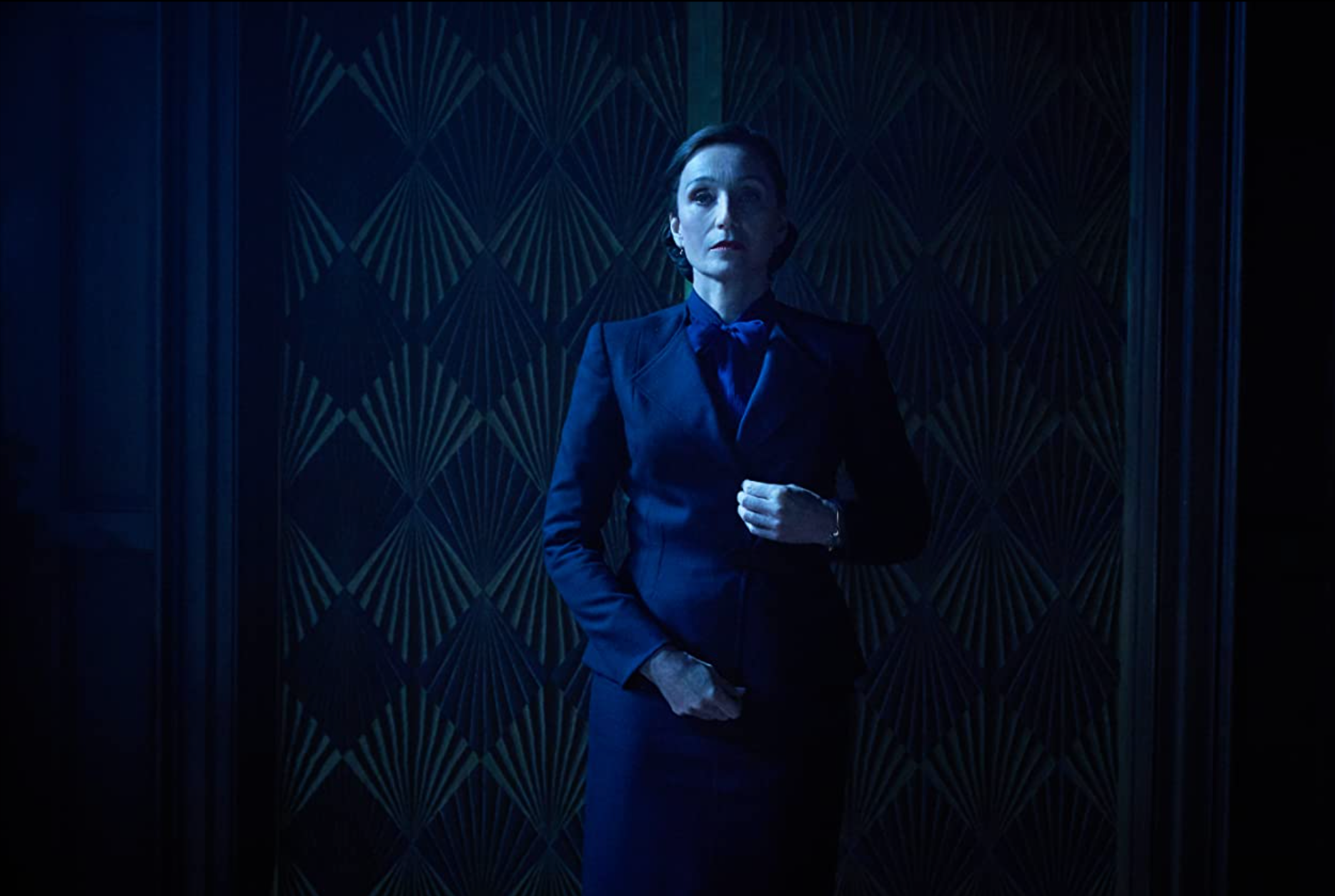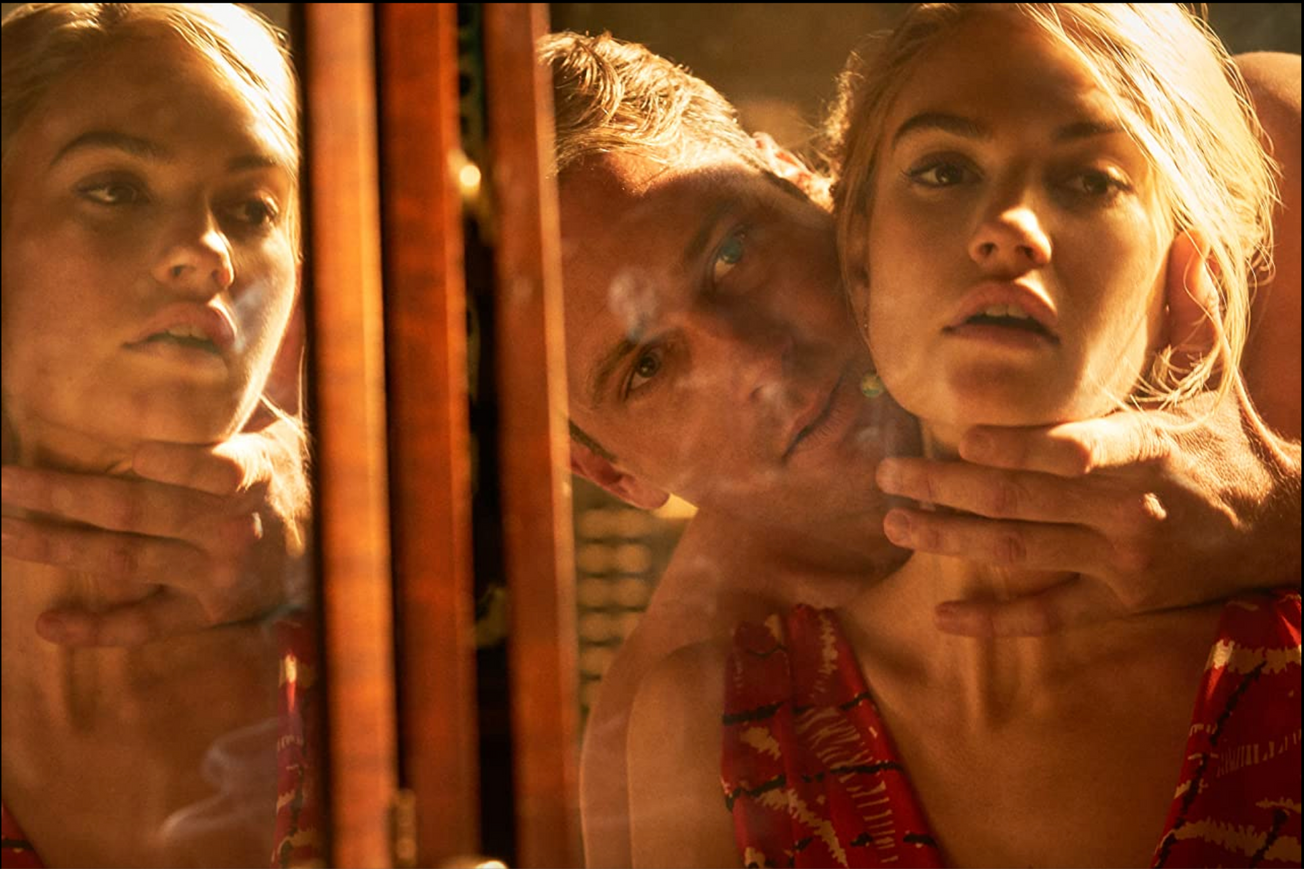By Maddy Raven, Film & TV Editor
Though visually pleasing (not stunning – I use the word stunning sparingly), Rebecca (2020) is a childish, mis-cast adaptation of the atmospheric novel by Daphne Du Maurier.
At times, it dips into deep troughs of melodrama, in which it takes itself far too seriously: this melodrama is spoiled by the waves of thirst Lily James gives off as she stars opposite Armie Hammer. She does timid and virginal, but also lusting after Hammer in a yellow suit (not a fan), very well.
Hammer, however, is still terrifying, even clad in tweed, so I find it very hard to believe that he could have been bullied by his psychopath wife. Standing at 194cm tall, he fills out the role of Maxim De Winter all too much. This casting, rushing of the best parts of the film, and the ultimately saccharine ending of the film all contribute to a poor adaptation.

The best part of the film, much like the book, is Mrs Danvers. Played by Kristin Scott Thomas, she lounges around Manderley as if she owns it, wearing the most fantastic costumes and scheming to oust the new Mrs De Winter.
In the novel, Lily James’ character is never named. Most likely, this is in order to draw attention to how she is overshadowed by the late Rebecca De Winter, and how she develops throughout the film. However, the montage of her maturing, helped along by Mrs Danvers (who is obviously plotting her downfall), is rushed.
Interestingly, the film succeeds in drawing parallels between Mrs De Winter and Mrs Danvers. One dark, the other light. One fantastically obsessed with a dead psychopath, one almost constantly sobbing in fear and clad in white.

But the film ultimately does the iconic Mrs Danvers a disservice. If you haven’t read the book, and you still know what I’m talking about, you would know that when Maxim De Winter is released from prison and the charges are dropped for the murder of his late wife, he drives back in a hurry to Manderley. As he drives over the hills, he sees that his home is on fire. This is where the book ends.
Ultimately far too preoccupied with the romance between Mr De Winter and his new wife, the film sees them return from prison together. House staff mill around the burning building and ultimately, there is a sort-of showdown between the two women of the film. Once again, this is tainted by the melodramatic sobbing that Lily James wrenches from herself.
I finished Rebecca feeling somewhat deflated – it has the feeling of a chopped-up BBC adaptation, where much liberty has been taken with the ending. If you’re familiar with the BBC production of An Inspector Calls (2015), you will know that if you must cut out an important narrative device then perhaps, it’s not meant for the screen. Or, it needs a director who is better suited to the task of adapting it. With An Inspector Calls, this was the mistake made when it was decided to bring the infamous Daisy on-screen, rather than letting her exist as a metaphorical ‘all-woman’.

Similarly, the ambiguous ending of Rebecca becomes a ridiculous scene where Mrs Danvers professes her love for the titular Rebecca and then jumps off a cliff, and we get a happily ever after for the Mr and Mrs De Winter – thus undoing the fear Rebecca’s name has invoked up until this point.
The film ends with the newly-wed globetrotters in Cairo, kissing and cuddling, and ultimately emotionally unscathed by the actions of Rebecca and Mrs Danvers. The ultimate draw of the star-power of this film is too much to bear – it collapses under the sheer weight of how attractive Lily James and Armie Hammer are. Director Ben Wheatley spends a lot of screen time showing the two in their loving embrace, which gives Mrs Danvers much less time to emotionally abuse Mrs De Winter as she should.

I only find it easy to believe that Mrs Danvers could push Mrs De Winter to almost-suicide because Mrs De Winter does such a good job of anxiously crying (she does a lot of this) throughout the film. The film tells the story of a young woman who, in a lustful haze, apparently agrees to marry a rich man (because what could go wrong?), and is ultimately out of her depth: not the psychological thriller that the book truly is.
Featured: IMDb
Will you be watching Rebecca?








